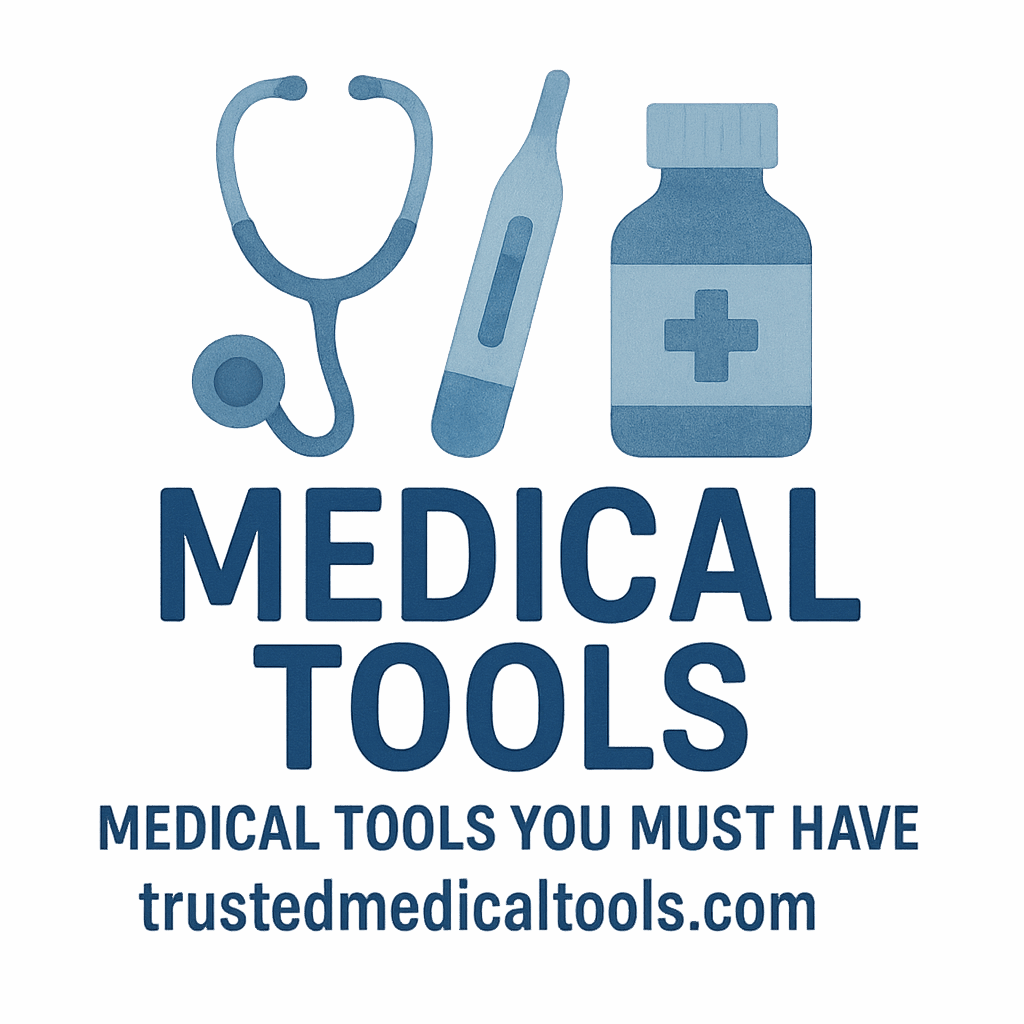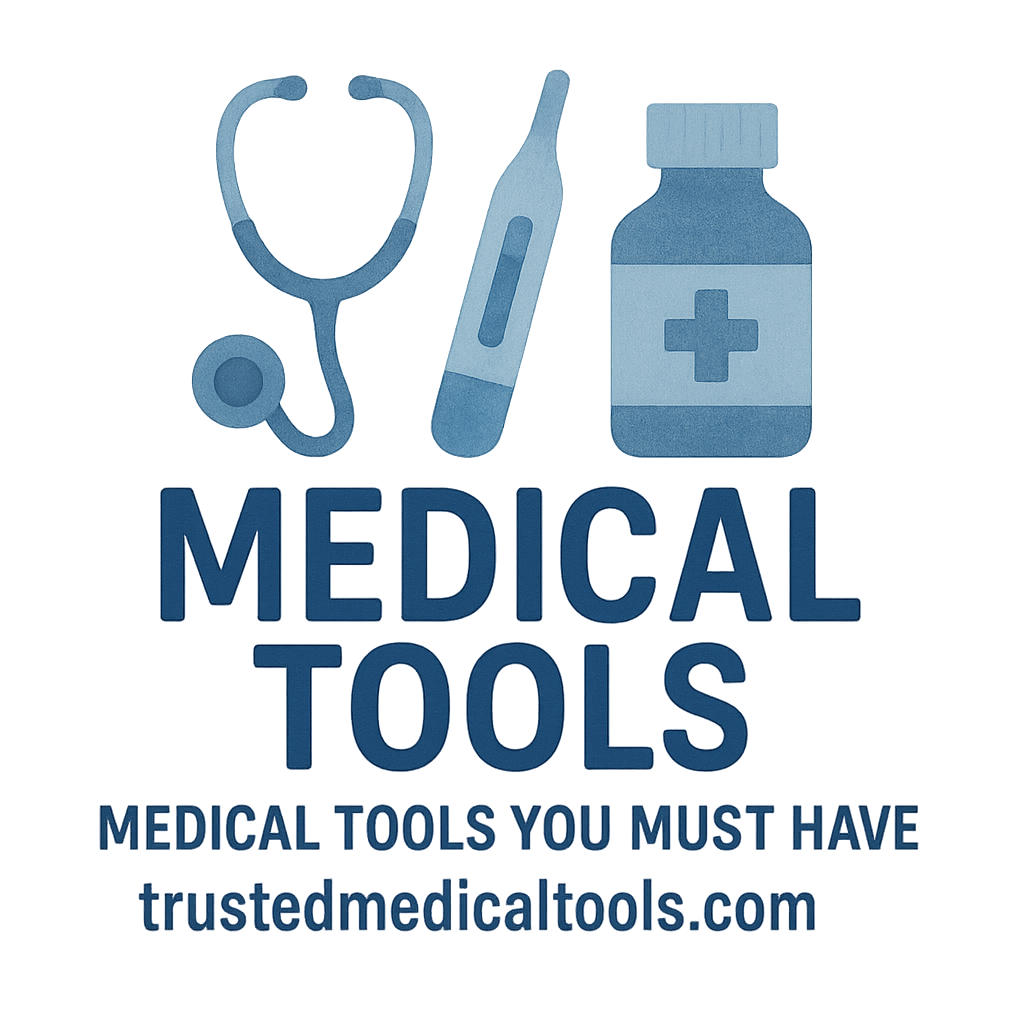Introduction
Caring for elderly family members at home can be both rewarding and challenging. As our loved ones age, they may require extra attention to ensure their safety, comfort, and health. Thankfully, modern medical tools have made it easier for families to provide high-quality care in the comfort of their own homes. Whether you’re caring for an aging parent or a grandparent, having the right medical tools can significantly improve their quality of life.
In this article, we’ll explore seven essential medical tools that are incredibly useful for elderly care at home. These tools will help you monitor their health, manage chronic conditions, and provide emergency care when necessary.
Why Home Care for the Elderly is Important
Caring for the elderly at home offers several advantages over institutional care. It provides a familiar and comfortable environment, allowing seniors to retain some independence and control over their lives. Additionally, being at home allows caregivers to offer personalized care tailored to the senior’s unique needs. This level of care is often more affordable and emotionally fulfilling for both the caregiver and the elderly person.
However, home care also comes with its set of challenges. Health monitoring, managing medications, and ensuring safety are all crucial elements of elderly care. With the right tools, caregivers can confidently manage these aspects and provide better overall care.
The Role of Medical Tools in Elderly Care
Medical tools are essential for monitoring the health of elderly individuals, particularly those who may have chronic conditions or mobility issues. These tools help caregivers detect early signs of health problems, administer treatments, and ensure that their loved ones are as comfortable as possible.
Understanding Basic Health Needs for the Elderly
As people age, their health needs become more complex. Seniors are more likely to suffer from chronic conditions such as diabetes, hypertension, and arthritis. Regular monitoring and appropriate treatment are essential to manage these conditions effectively. Medical tools such as blood pressure monitors, thermometers, and pulse oximeters can help caregivers track the health of elderly individuals.
Monitoring Health at Home
Monitoring a senior’s health at home is not just about emergency situations—it’s about day-to-day care. Regular health assessments can help detect subtle changes that could indicate the need for medical intervention. By using the right tools, you can better track health metrics, ensuring that your loved one remains safe and well.
1. Blood Pressure Monitor
One of the most important aspects of elderly health is managing blood pressure. Uncontrolled hypertension can lead to severe complications like stroke, heart disease, and kidney failure. Regular monitoring can prevent these outcomes by catching early signs of abnormal blood pressure.
Why Blood Pressure Monitoring is Crucial
High blood pressure often goes unnoticed, as it typically has no symptoms until it becomes severe. For seniors, it’s especially critical to monitor blood pressure regularly because the risk of hypertension-related complications increases with age. Early detection through regular monitoring can help prevent life-threatening conditions.
Choosing the Right Blood Pressure Monitor
When selecting a blood pressure monitor for elderly care, you want to ensure that it’s easy to use, accurate, and comfortable. Look for devices with large displays and simple controls. Automatic digital monitors are often the most convenient for elderly users, as they don’t require manual stethoscopes or cuffs. For more detailed information on blood pressure monitors and other medical tools, check out Trusted Medical Tools’ Blood Pressure Monitors.
2. Thermometer (Digital or Infrared)
Temperature regulation is critical for elderly individuals. Fever or hypothermia can be serious indicators of infection or other health issues. A thermometer helps caregivers monitor temperature fluctuations, ensuring that any signs of illness are promptly addressed.
The Importance of Accurate Temperature Measurement
A fever in elderly individuals can be a sign of a serious infection, while hypothermia can occur in cold environments, putting seniors at great risk. Accurately measuring body temperature allows you to respond quickly to these conditions, preventing further complications.
Best Thermometers for Elderly Care
When choosing a thermometer for an elderly person, opt for digital or infrared models. These are easy to use, give fast readings, and are often more comfortable for seniors who may not tolerate traditional thermometers well. Visit Trusted Medical Tools’ Family Care to find a wide variety of thermometers suited for elderly care.
3. Pulse Oximeter
A pulse oximeter is a small device that measures the oxygen levels in the blood and the heart rate. This is especially important for seniors with respiratory conditions like COPD, asthma, or pneumonia.
How a Pulse Oximeter Works and Why It’s Important
The pulse oximeter works by emitting light through the skin and measuring the amount of oxygen in the blood. For elderly individuals, maintaining proper oxygen saturation levels is essential for overall health. Low oxygen levels can lead to fatigue, shortness of breath, and other serious complications.
How to Choose the Right Pulse Oximeter
When shopping for a pulse oximeter, look for models that are easy to use and provide accurate readings. Features like large digital displays and fingertip attachments are great for seniors. You can check out pulse oximeters designed specifically for elderly care at Trusted Medical Tools’ Home Essentials.

4. First Aid Kits
Accidents can happen at any time, and having a first aid kit readily available is essential for elderly care. From minor cuts and bruises to more serious injuries, a well-stocked first aid kit ensures that you’re prepared for emergencies.
Why Every Home Should Have a First Aid Kit
A first aid kit provides you with the necessary tools to handle minor injuries and stabilize your loved one until professional medical help arrives. For elderly individuals who may be more prone to falls or injuries, having an accessible first aid kit is a must.
What to Include in a First Aid Kit for Elderly Care
When putting together a first aid kit for elderly care, include bandages, antiseptic wipes, gauze, scissors, tweezers, and a thermometer. You may also want to add medications, such as aspirin, and a first aid manual for reference. For more guidance on assembling a first aid kit, visit Trusted Medical Tools’ First Aid.
5. Glucometer for Diabetes Management
Managing diabetes is crucial for elderly individuals, as it’s a common condition that can lead to serious complications if left unchecked. A glucometer helps caregivers monitor blood sugar levels regularly.
Diabetes Care and Monitoring
Diabetes requires constant monitoring of blood glucose levels. A glucometer is the best tool for managing this condition, as it provides instant readings that allow for immediate action if blood sugar levels are too high or too low.
Best Glucometers for Seniors
Choose a glucometer that is easy to use, with large display screens and memory storage for previous readings. Some glucometers also have built-in alerts to remind caregivers to check glucose levels regularly. Visit Trusted Medical Tools’ Health Equipment for top-rated glucometers.
6. Medication Dispenser/Organizer
Managing medications for the elderly can be challenging, especially when dealing with multiple prescriptions. A medication dispenser or organizer helps ensure that medications are taken correctly and on time.
Managing Medication for the Elderly
Seniors often have complex medication regimens that require careful organization. Missing doses or taking incorrect amounts of medication can lead to serious health problems.
Features to Look for in a Medication Dispenser
Opt for a dispenser with multiple compartments for each day of the week or specific times of day. Some dispensers come with alarms to remind your loved one when it’s time to take their medication. For a wide selection of medication organizers, check out Trusted Medical Tools’ Family Care.
7. Mobility Aids (Walkers, Canes, etc.)
Maintaining mobility is a significant concern for elderly individuals. Mobility aids such as walkers, canes, and wheelchairs help seniors maintain independence and reduce the risk of falls.
Ensuring Safe Mobility at Home
A fall can have severe consequences for an elderly person. Mobility aids can prevent falls by providing support and stability. Additionally, these aids allow seniors to move around more freely and safely in their homes.
Selecting the Right Mobility Aids for Seniors
When choosing mobility aids, consider factors such as comfort, support, and ease of use. Walkers with adjustable height, padded grips, and sturdy frames are ideal for seniors. You can explore various mobility aids in Trusted Medical Tools’ Mobility Aids.
Conclusion
Caring for the elderly at home can be a challenging yet rewarding experience. With the right medical tools, you can provide the care and support that your loved ones need to stay healthy and safe. Whether it’s monitoring their blood pressure, managing diabetes, or ensuring their mobility, these tools can make all the difference in their well-being.
Investing in these tools not only helps manage health conditions but also ensures peace of mind for caregivers. So, take the time to equip your home with the necessary medical tools, and remember, your loved one’s health and safety come first.
FAQs
- Why is a blood pressure monitor essential for elderly care?
Blood pressure monitoring helps detect hypertension and prevent related complications such as strokes and heart disease. - What’s the best type of thermometer for elderly care?
Digital or infrared thermometers are the most convenient and comfortable for elderly individuals. - How often should I check an elderly person’s oxygen levels with a pulse oximeter?
Regular checks should be done if your loved one has respiratory issues. For healthy seniors, checking once a week or as needed is sufficient. - Can a first aid kit be used for emergencies involving seniors?
Yes, a first aid kit is crucial for treating minor injuries and stabilizing your loved one before medical help arrives. - Why is diabetes management important for seniors?
Managing blood sugar levels effectively reduces the risk of complications like heart disease, kidney failure, and nerve damage. - What features should I look for in a medication dispenser for seniors?
Look for easy-to-use dispensers with multiple compartments and alarms to remind seniors to take their medications. - What mobility aids are best for elderly individuals?
Walkers, canes, and wheelchairs that are adjustable, comfortable, and provide sturdy support are ideal for seniors.


